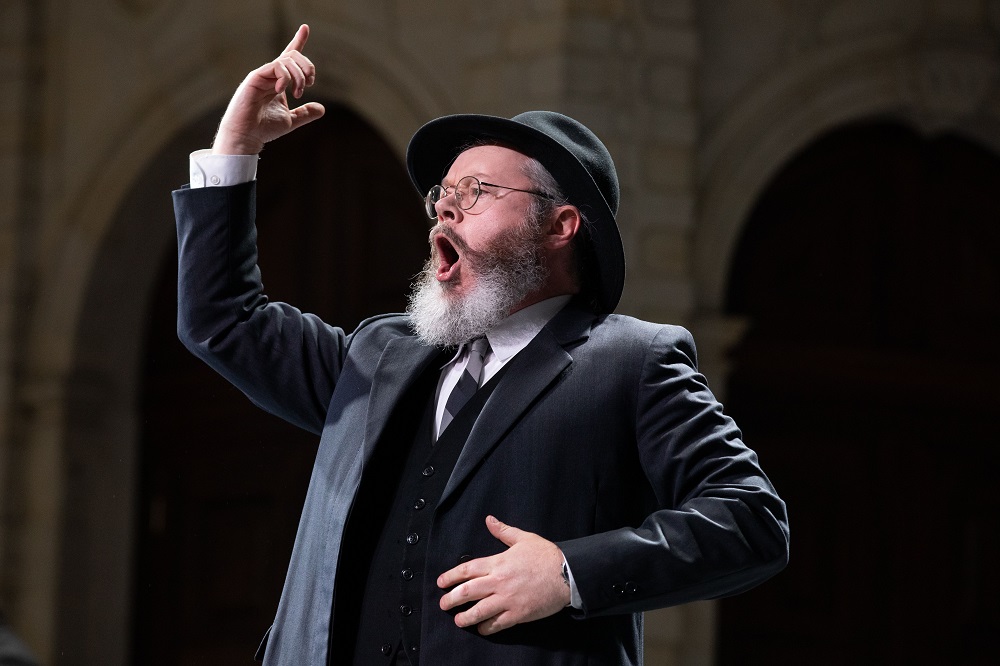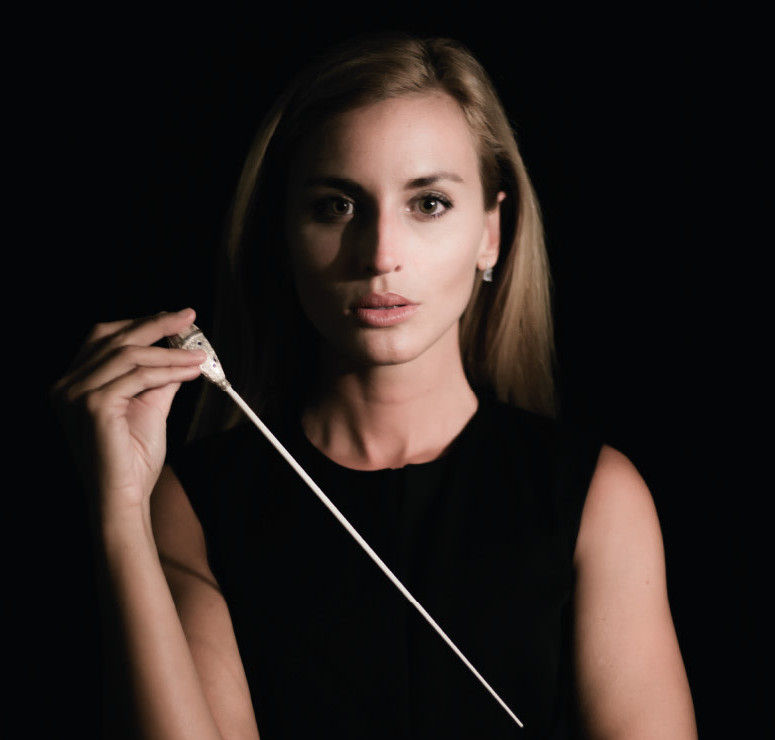“If this is love, then why have I fought it?” The stock romantic-comedy prevarications had a Greenwich Village setting in Bernstein’s Wonderful Town at Opera Holland Park less than two weeks ago. Last night, the place was nominally Alsace but the style totally Italianate. To adapt another line from the same Bernstein song, “You know it when you hear it” – and with OHP’s utterly dependable and authentic Italian tenor Matteo Lippi as the hero of Mascagni’s light-hearted but still passionate love story, that was guaranteed.
Plunge straight into the well-known Intermezzo and the throbbing pain in the first half of L’amico Fritz’s Act Three, and you’d think something momentous had happened. Not so: girl (contadina Suzel) found boy (rich bachelor Fritz Kobus), boy tentatively wooed girl but ran off, horrified at the prospect of becoming a married man. There’s a rabbi who wants everyone to be wed and produce babies; though his thoughts on the sterile life of the singleton might seem obnoxious to us, he’s sympathetically and jovially portrayed, engineering the couple's union, and resonantly sung by Paul Carey Jones (pictured below); no wonder this is Longborough’s Wotan of choice.  Director Julia Burbach also turns the itinerant Beppe into an ever-present winged Cupid; given the natural dramatic gifts of the splendid Kezia Bienek, more could be done here, and there’s some inertia in the staging which, as in The Cunning Little Vixen also at OHP, could easily be filled by willing singer-actors being given a bit more definition in movement. Alyson Cummins’ costumes, though, make it all look good: stylish black and white for the bachelor’s birthday, full colour (embodied first in Suzel) when love reigns triumphant. The ladders which start out as the props for Suzel’s mimed cherry-picking in Act Two – invisible objects not great when there are so many realistic ones like Beppe’s bike – turn out to be aspirational, helping love along, not a bad idea.
Director Julia Burbach also turns the itinerant Beppe into an ever-present winged Cupid; given the natural dramatic gifts of the splendid Kezia Bienek, more could be done here, and there’s some inertia in the staging which, as in The Cunning Little Vixen also at OHP, could easily be filled by willing singer-actors being given a bit more definition in movement. Alyson Cummins’ costumes, though, make it all look good: stylish black and white for the bachelor’s birthday, full colour (embodied first in Suzel) when love reigns triumphant. The ladders which start out as the props for Suzel’s mimed cherry-picking in Act Two – invisible objects not great when there are so many realistic ones like Beppe’s bike – turn out to be aspirational, helping love along, not a bad idea.
Fritz is the main character, first his insouciance and then his heartache delivered with exactly the right Italian bloom by the infallible Lippi, though Suzel comes more slowly into focus. Katie Bird (pictured below) doesn’t have the ideal lyric line in the earlier stages, singing under the note at times, but the wide vibrato comes into its own for the intensity of Act Three, and the declaration-of-love duet is rightly a highlight. With everyone singing grandly of “l’amor” – the shuffling dance-couples at the back go against the grain of the stentorian hymn – this might as well be Turandot (composed some 23 years later) rather than the finale of a modest idyll.  There are times when Mascagni’s scoring is blockish and blatant, but others when the pastoral winds produce pure delight. This orchestral reduction, like the one for Vixen, sounds well, and once again you'd never know there were only a few strings playing in the heart-on-sleeve moments.Ace trumpeter David Blackadder caps a procession of local kids (you have to imagine them), grateful to benefactor Fritz, in high style.
There are times when Mascagni’s scoring is blockish and blatant, but others when the pastoral winds produce pure delight. This orchestral reduction, like the one for Vixen, sounds well, and once again you'd never know there were only a few strings playing in the heart-on-sleeve moments.Ace trumpeter David Blackadder caps a procession of local kids (you have to imagine them), grateful to benefactor Fritz, in high style.
 Leader Martin Burgess eloquently expresses the violin solo that Beppe supposedly plays to preface a song about Fritz the champion of the poor, though last night the helicopter obbligato wasn’t a great help. Very little in the score outstays its welcome, and Venezi (pictured right by Lorenzo Montanelli) has the idiom in spades: what a find is this third of OHP’s three women conductors, their espousal in marked contrast to other opera companies this summer. The whole thing is so perfectly in tune with the relaxed Holland Park setting, and absolutely right for the balmy evenings that have at last set in, so decidedly a bright feather in OHP’s cap of variegated Italian rarities. Full marks to CEO James Clutton, too, for deciding to keep the seating distanced until the end of the season, honouring those who bought their tickets on that understanding.
Leader Martin Burgess eloquently expresses the violin solo that Beppe supposedly plays to preface a song about Fritz the champion of the poor, though last night the helicopter obbligato wasn’t a great help. Very little in the score outstays its welcome, and Venezi (pictured right by Lorenzo Montanelli) has the idiom in spades: what a find is this third of OHP’s three women conductors, their espousal in marked contrast to other opera companies this summer. The whole thing is so perfectly in tune with the relaxed Holland Park setting, and absolutely right for the balmy evenings that have at last set in, so decidedly a bright feather in OHP’s cap of variegated Italian rarities. Full marks to CEO James Clutton, too, for deciding to keep the seating distanced until the end of the season, honouring those who bought their tickets on that understanding.














Add comment